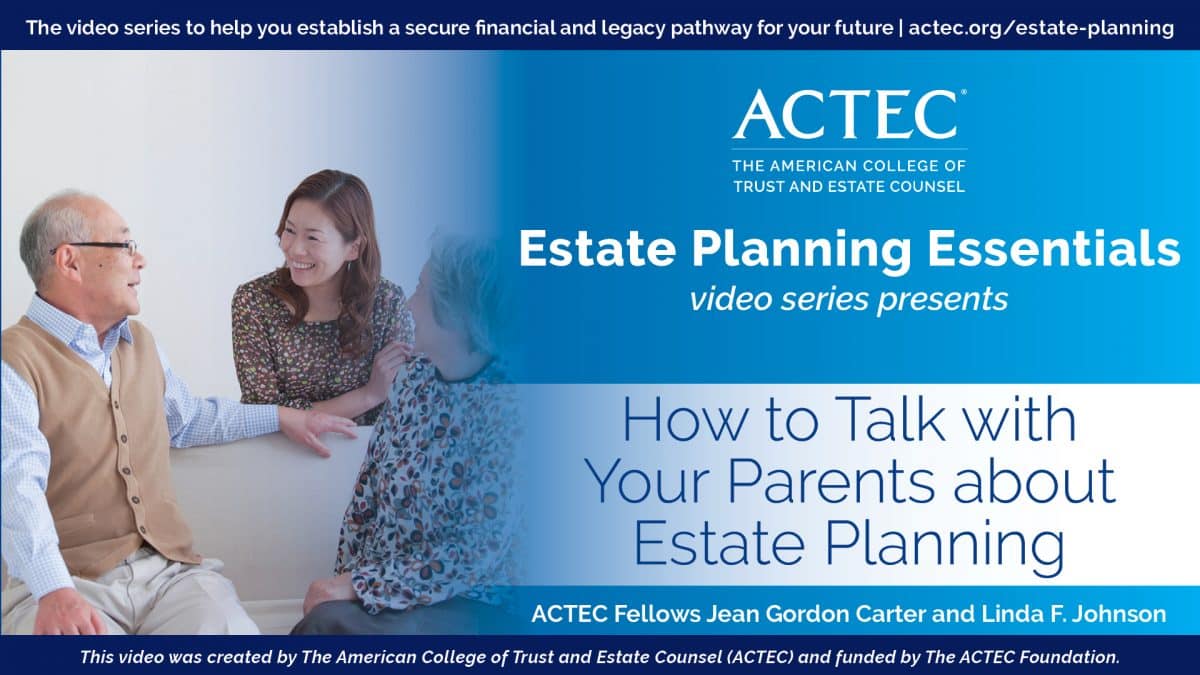Tangible personal property refers to physical assets that individuals own, such as furniture, vehicles, electronics, and jewelry. Adding tangible personal property provisions to your estate plan ensures smooth inheritance, prevents disputes, and helps distribute sentimental items as you wish.
ACTEC Fellows Elizabeth A. Garlovsky and Tiffany N. McKenzie explain what you’ll want to understand about how to plan for tangible property in your will or trust.
Transcript
Hello, this is Elizabeth Garlovsky, ACTEC Fellow from Chicago. We are here today to talk about tangible personal property in estate planning. Said differently, when putting your estate plan in place, and once it is in place, what are you supposed to do with your stuff? What options do you have, and what are the best practices to ensure a smooth and efficient transition of your everyday and collectible items, which may have sentimental value, monetary value, or both?
ACTEC Fellow Tiffany McKenzie of Atlanta, Georgia, joins us today to discuss this topic. Thanks for being here, and welcome, Tiffany.
Tiffany McKenzie: Thanks, Lizzy, for having me. Excited to talk about this.
Tangible Personal Property and Your Will or Trust
Elizabeth Garlovsky: Okay, so let’s get right into the questions. So, Tiffany, should you put distributions of tangible personal property in your will, in your trust—or are there other documents to prepare?
Tiffany McKenzie: Lizzy, that’s a great question. You should absolutely put distributions of tangible personal property in your estate planning documents, like your will or your trust. Often, as you said earlier, tangible items come with so much emotional and sentimental value. So, it’s really important that you address them in your estate planning documents.
There are some states that allow you to also include a supplemental amendment, or sometimes a tangible personal property list, that would allow you to more easily distribute your tangible personal property and to amend who it is that you might want to receive certain items and or the items that you put on that list.
Distributing Your Tangible Personal Property
Elizabeth Garlovsky: Thank you, Tiffany. Next, who decides how the property will be distributed, and can I direct the method of distribution?
Tiffany McKenzie: Thanks, Lizzy, for that question. So, you can decide how you want your property to be distributed and to whom you want it to be distributed. And you can absolutely direct the method of distribution in your estate planning documents. So, under your will, your executor will be the person, or your personal representative will be the person, who administers those wishes. And if it’s under your trust, your trustee will be the person who administers those wishes.
We do recommend that you kind of keep it simple, though. Make sure that you are very clear as to the actual item. And sometimes, put some descriptive words around, for example, artwork. So, tell us a little bit about it. Who created the artwork? What does it look like, et cetera? It’s really helpful to your executors, personal representatives, or trustees who actually distribute those assets.
Elizabeth Garlovsky: Great, thank you. And can you use different methods, such as a lottery or drawing straws, to help people decide?
Tiffany McKenzie: Absolutely. So, you can include in your will or trust a lottery provision, or kind of, like you said, picking straws, to decide who gets to pick the items and in what order they pick items. But again, let’s just make sure that you keep it simple in your documents so that your executor or trustee can administer those things easily and efficiently.
Coordinating and Tracking Your Personal Property
Elizabeth Garlovsky: And then, how do you recommend keeping track of the tangible personal property while you’re actually alive?
Tiffany McKenzie: We do recommend that you keep an inventory of some kind and try and update that periodically. You know, realistically, we know it’s hard for people to do this all the time because often, during your life, you’re getting more things, you’re giving things away, you move, you might donate. But it’s very important, especially if you have very valuable property, that you keep track of it and that you get an appraisal to make sure that you’ve got the values appropriately defined. If you get an insurance policy to protect those assets, that’s another great way to keep track of them, because the insurance companies will keep schedules of those assets.
Sometimes, clients take pictures and create catalogs. There are many different ways to keep track of it. But we do recommend that if you’re keeping track, make sure that you update that periodically, and make sure you tell your estate planning advisors as to where those inventories are.
Valuating Your Tangible Personal Property
Elizabeth Garlovsky: And then, how will the property actually be valued at death, and how can you ensure to divide it equally among multiple individuals?
Tiffany McKenzie: When you die, most of the time, the easiest way to value property is to hire a professional. Hire a professional appraiser to value that property. And then, you want to make sure that, according to your documents, if you want to divide them equally, there’s a mechanism to divide assets that are hard to divide.
So, for example, if you’ve got a set of valuable dishware, you might want to give the entire set to one person and then equalize that by giving an asset of equal value, or cash, to another person. So, there are many different ways to equalize, but make sure that if you’re doing that, it’s very clear in your estate planning documents as to how you want to make those types of distributions.
Expenses Associated With Distributing Property
Elizabeth Garlovsky: OK, great. And then, who pays for the cost to store, insure, pack, and ship the property that’s being distributed at death?
Tiffany McKenzie: Most of the time, you can put in your estate planning document provisions around those expenses. So, the storing, the ensuring, packing, shipping—all of those can be expenses of your estate or your trust. And if you don’t have that type of language, sometimes the actual person who was receiving the asset might pay for those expenses directly.
Elizabeth Garlovsky: And then, what if you have a unique, one-of-a-kind item that can’t be divided, such as a baseball signed by Babe Ruth or a special one-of-a-kind or unique piece of jewelry?
Tiffany McKenzie: Consider getting input from the potential takers as to their preferences, or consider giving away those items during life. You can also, as I said earlier, make sure that you equalize, so that if you give a high-value asset to one person, you might give another asset or cash of equal value to a different person. You can also just state that those high-value assets should be sold, and then those proceeds could be divided equally. There are many different things that you can do when it comes to high-value assets.
Coordinating Your Wishes With Your Executor or Trustee
Elizabeth Garlovsky: And then, the final question is: how do I protect my stuff from just disappearing or being taken by family members or other people when I pass away?
Tiffany McKenzie: That’s a great question, Lizzy. We really recommend that you’ve got your estate planning documents in place, so that you arm your executor, your personal representative, or your trustee with the power to really corral your assets and protect those assets. That’s really going to be the main person to ensure that your assets don’t just walk out the door when your family members or loved ones are at your home after your death. We really want to make sure that those people are armed with the power to really protect those assets for your benefit and for the beneficiaries’ benefits.
Elizabeth Garlovsky: OK, great. Well, thank you so much, Tiffany, for answering all those great questions. For more information, please visit actec.org/estate-planning
Featured Video
How to Talk With Your Parents About Estate Planning
Trust and estate lawyers offer recommendations for how to have critical conversations with your parents about end-of-life planning and estate documents.
ACTEC Estate Planning Essentials

ACTEC Fellows provide answers to frequently asked trust and estate planning questions in this video series.



